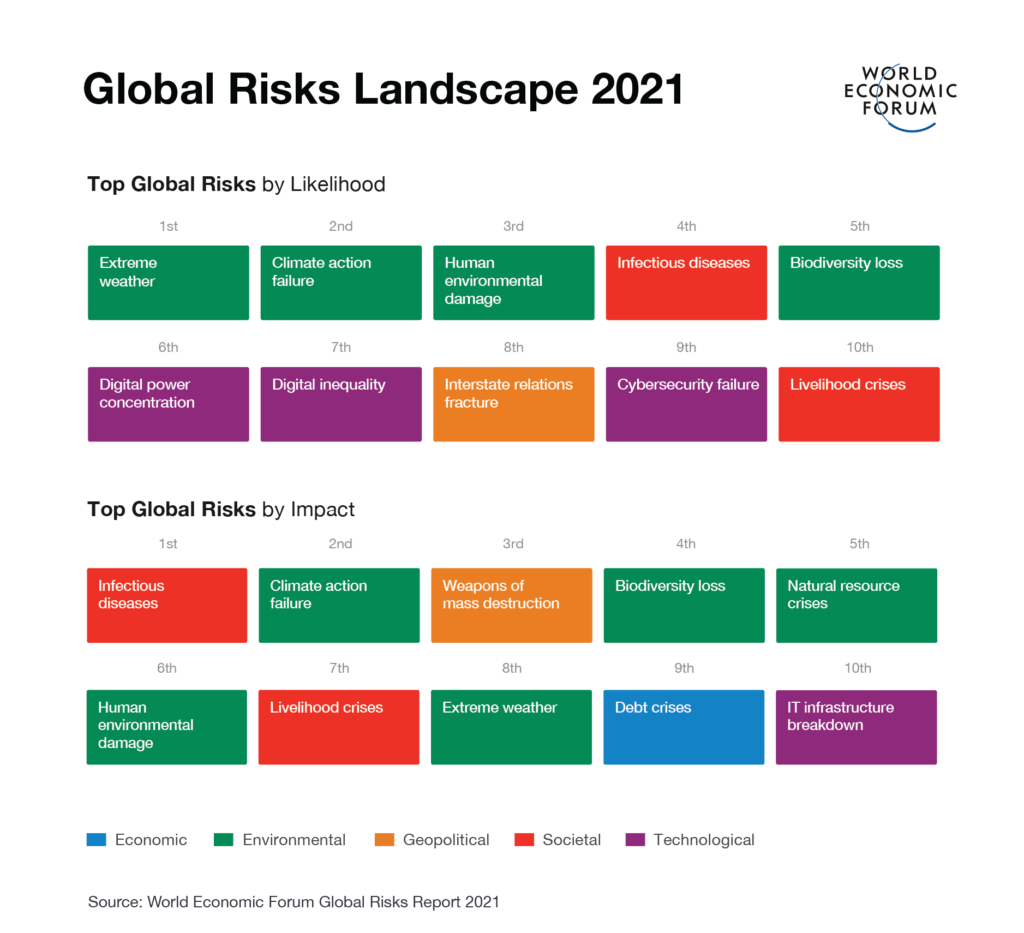
https://finanzasdomesticas.com/principales-riesgos-mundiales-2021/: The principal global risks in 2021 included challenges such as the ongoing pandemic, climate change, cyber threats, and economic instability. These risks shaped policies, impacted economies, and altered the way governments and businesses operated worldwide. Understanding these risks is essential for planning and resilience in an interconnected world.
From health crises to geopolitical tensions, 2021 was a year of profound global challenges. This guide will explore the major risks identified during the year, their implications, and the strategies employed to address them.
What Were the Top Global Risks in 2021?
1. The COVID-19 Pandemic
The pandemic remained the most significant global risk in 2021. Its impact extended beyond public health, disrupting economies, supply chains, and daily life worldwide. Governments focused on vaccine rollouts, but new variants such as Delta raised concerns over prolonged disruptions.
2. Climate Change and Environmental Risks
Climate change risks became more pressing in 2021, with extreme weather events like wildfires, hurricanes, and floods causing widespread damage. Global warming continued to accelerate, prompting governments to pledge ambitious goals at events like the COP26 summit. However, progress on mitigating these risks remained uneven.
3. Economic Instability
The economic fallout from the pandemic led to unemployment, inflation, and increased debt levels globally. Developing countries faced significant challenges, with slow vaccine access exacerbating inequalities. Meanwhile, advanced economies grappled with balancing recovery efforts and controlling inflation.
4. Cybersecurity Threats
Cyberattacks surged in 2021, targeting critical infrastructure, financial institutions, and private organizations. High-profile incidents like the Colonial Pipeline ransomware attack highlighted vulnerabilities in digital systems and the growing need for robust cybersecurity measures.
5. Geopolitical Tensions
Tensions between major powers, such as the U.S. and China, shaped global dynamics. Issues like trade conflicts, territorial disputes, and technology competition escalated, creating uncertainty in international relations.
Key Implications of These Risks
1. Reshaping Business Operations
Businesses worldwide adapted to remote work, digital transformation, and supply chain diversification to mitigate pandemic-related disruptions. Sustainability and resilience became key themes for long-term planning.
2. Accelerated Climate Action
The risks associated with climate change pushed governments and corporations to commit to greener policies. However, gaps between pledges and actions highlighted the need for greater accountability and innovation.
3. Strengthening Cybersecurity
The rise in cyber threats prompted organizations to invest in advanced cybersecurity solutions and protocols. Governments also emphasized international cooperation to combat cybercrime.
Lessons Learned from 2021 Risks
1. Preparedness is Essential
The pandemic underscored the importance of proactive planning and investment in healthcare infrastructure. Global collaboration played a critical role in vaccine development, showcasing the power of joint efforts in addressing risks.
2. Climate Action Cannot Wait
2021 served as a wake-up call for more urgent climate action. Innovative solutions, public-private partnerships, and community-level efforts are crucial for tackling environmental risks.
3. Digital Security is a Priority
The increasing reliance on technology requires enhanced digital safeguards. Both governments and businesses must prioritize cybersecurity to protect critical systems and data.
How to Address Global Risks Moving Forward
- Strengthen International Cooperation: Collaborative efforts are vital for managing health crises, climate risks, and cyber threats.
- Invest in Resilience: Governments and businesses must build systems capable of withstanding unexpected shocks.
- Enhance Education and Awareness: Informing the public about risks and mitigation strategies fosters a proactive and prepared society.
Conclusion
The principal global risks in 2021 underscored the importance of resilience, collaboration, and innovation. From managing pandemics to combating climate change and addressing cyber threats, the lessons learned in 2021 will shape future strategies for a safer and more sustainable world.
For a detailed exploration of these risks, visit https://finanzasdomesticas.com/principales-riesgos-mundiales-2021/
